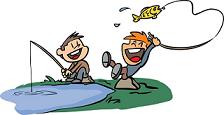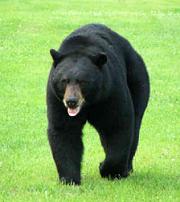
MCCOMB – (AP) When state wildlife officials decided to expand alligator hunting this year – not once but twice – local officers got a tiny bit worried.
At first, the Mississippi Department of Wildlife, Fisheries and Parks (MDWFP
) said the hunt could take place on public waterways across two-thirds of the state, including all of southwest Mississippi.

Then officials expanded the territory even farther, to include waters accessible by boat adjacent to public waterways.
That meant, for example, that Buffalo River at Lake Mary would be open. Though it’s not classed as a public waterway, it connects to the Mississippi River, which is.
Maj. Lane Ball of MDWFP said he had some concerns about the expansion.
“The people in Jackson didn’t understand how much water that opened up in our part of the state,” Ball said, noting it took in lots of water in the Lake Mary area as well the Pascagoula River Basin.
“We had been telling people, `You can’t hunt on Buffalo River.’ ”
As it turned out, though, “the only complaint that I really heard, some of the people that had camps at Lake Mary were a little bit miffed because you had people coming from all over Mississippi putting in there,” Ball said.
In one instance, an offshore vessel with twin engines came chugging up the Old Homochitto River, he said.
But then, some Lake Mary camp owners were gator hunting as well.
The lottery hunt was held Sept. 7 to 17. Only specific methods were allowed. The most popular was a deep-sea fishing rod with treble hook. Hunters snagged the gator, pulled it alongside, snared it, then shot it.
The southwest zone – south of Interstate 20 and west of Interstate 55 – yielded 116 gators. The average male was 9 feet long, and the biggest was 13.17 feet.
The south-central zone produced 87 gators, the southeast 95 and the west-central (Delta) 156.
A group of Delta hunters caught one that measured 13-feet, 1-1/2-inch and weighed 697.5 pounds.
“It was a big success,” Ball said of the hunt. “A lot of people enjoyed it.”
“It benefits everybody because we’re getting too many gators,” said wildlife conservation officer Jimmy Hutson. “People see them out on a lake and it scares them. We’re having to go get them out of swimming pools. Won’t nothing kill a gator but another gator – or a human.”
The state had already been holding lottery hunts on private lands in 28 counties – including Adams, Wilkinson, Lawrence and Marion in southwest Mississippi.
The expansion into public waterways coincided with a surge of interest in alligators thanks to the TV show “Swamp People.”
“When they came out with `Swamp People,’ everybody wanted to kill an alligator,” Hutson said. “Before that, nobody wanted to kill an alligator.”
But Mississippi’s recreational season was quite different from the Louisiana hunts depicted in the TV show.
Unlike Mississippi, Louisiana allows hunters to hang large baited hooks over the water.
“I can’t tell you the number of cases we’ve made based on `Swamp People,’ baiting their hooks,” Ball said.
Art Mott of Lawrence County is a professional gator trapper for the wildlife department and is licensed to buy gators from the recreational hunters. As a result, he saw lots of them.
The biggest he saw was 12 feet, 10 inches and just over 700 pounds, taken in Pearl River just north of Monticello.
“He was just huge as far as girth and all,” Mott said. “He was as big an alligator as you want to see.”
A lot of big ones, 12 feet and longer, came from the Mississippi and Big Black rivers.
“I skin them and I salt the hides and I sell the hides to an alligator buyer that buys hides,” Mott said.
The state doesn’t pay him to trap but allows him to work year-round and keep and sell the gators.
“I’ve caught some big ones this year myself as far as nuisance gators,” Mott said.
He caught three at Percy Quin State Park before the lake was drained in September – one more than 11 feet long and two over 8 feet.
He also catches them in Pearl River, Lake Lincoln, Lake Mary Crawford, Lake Columbia, Lake Bill Waller – “all the state lakes. We try to keep everything down to 7 feet or below out of there just for safety purposes,” Mott said.
“There’s so many of them. That’s the reason they had this season. They try to control the population, just like they do deer.”




Be the first to comment